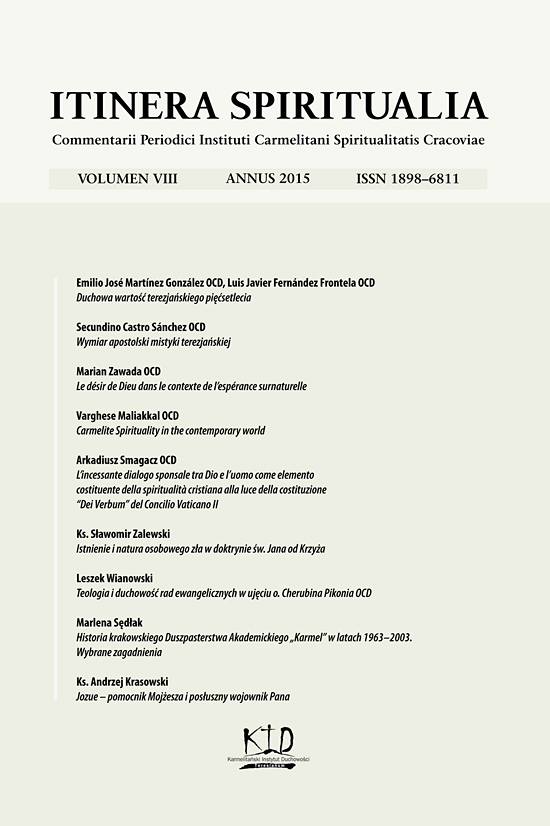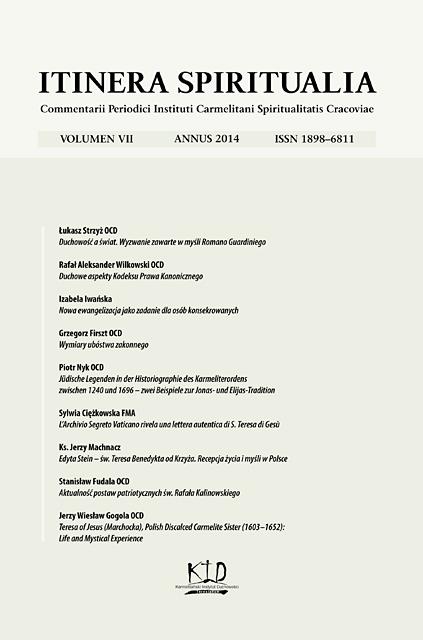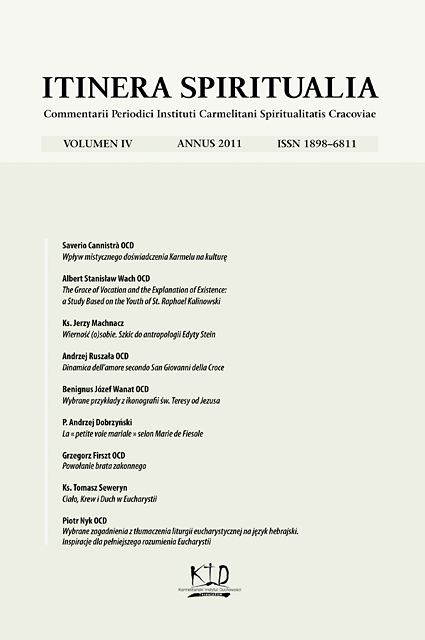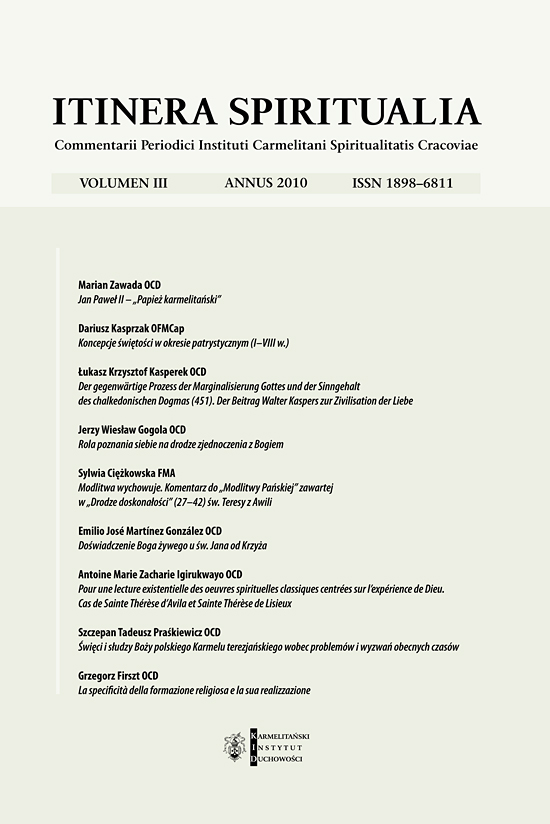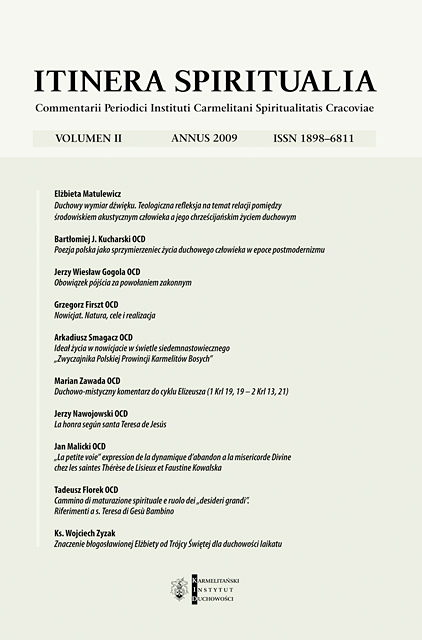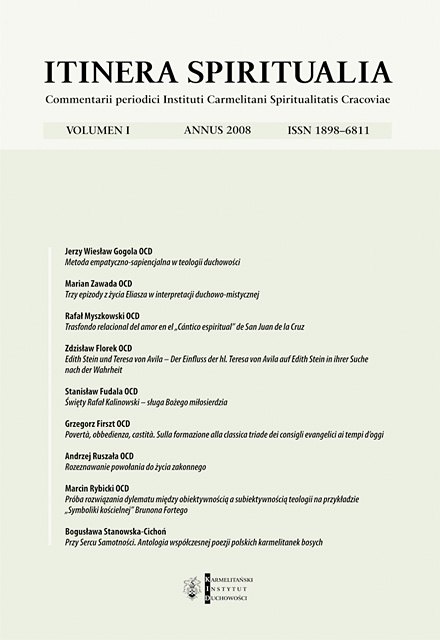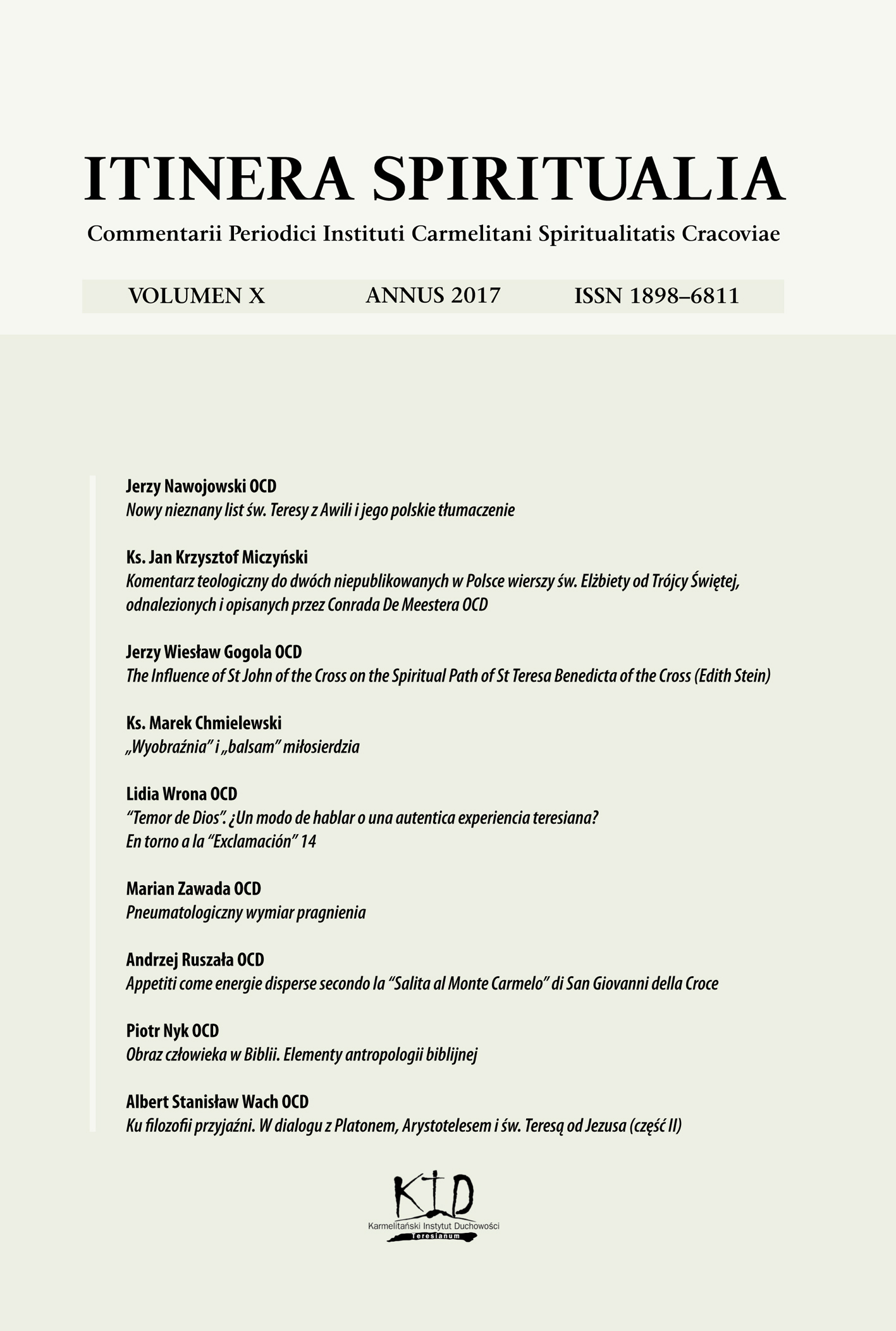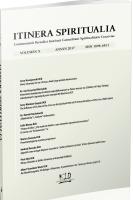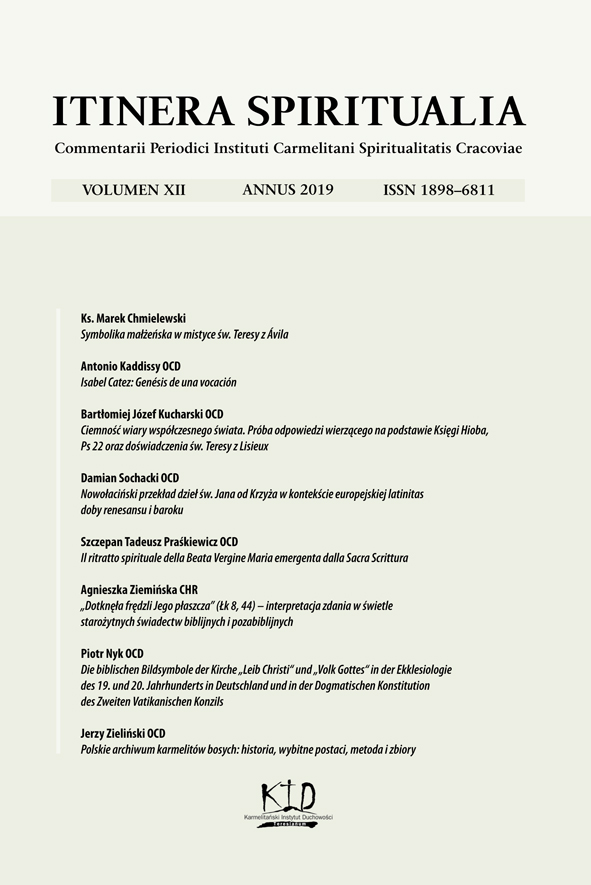Il Ritratto spirituale della Beata Vergine Maria emergenta dalla Sacra Scrittura
Author(s): Szczepan T. Praśkiewicz / Language(s): English,Italian
/ Issue: 1/2019
Keywords: Virgin Mary; Daughter of Sion; the poor (anawim) of Yahwe; spiritual life; Holy Bible
The article examines the issue of Marian spirituality in the light of biblical revelation. It reminds us that although the original proclamation of the apostles, i.e. the kerygma contained in the Acts of the Apostles, focuses on the key event of the salvation of Jesus’ death and resurrection, without any direct mention of his Mother, the Apostle Paul mentions the Mother of the Messiah (Gal 4:4), and the evangelists not only place her in God’s salvific plan, but also show her virgin motherhood through the action of the Holy Spirit (Matt 1:18–25), and using different ways shape her spirituality. The Virgin of Nazareth, as a pilgrim in faith (Lk 1:45), a model of prayer (Lk 1:46; Acts 1:14) and a model of meditations on the word of God (Lk 2:19.51), is worthy of praise according to her own prophetic words, “From now on all generations will call me blessed” (Lk 1:48). The people of God, following Elizabeth (Lk 1:42), should proclaim Mary blessed because God, through his Angel (Lk 1:28), called her “full of grace” and chose her from all women as the mother of his son. Moreover, Christ’s followers should take Mary as the beloved disciple did (Jn 19:27) and should keep her “spiritual will” from Cana of Galilee: “do whatever he tells you” (Jn 2:5), which harmonizes with the words of God the Father in the theophany on Mount Tabor “Listen to him!” (Matt 17:5). The Bible shows Mary having with a unique task to fulfil in the history of salvation, which Christians must recognize by accepting her, opening themselves to her glory and accepting her motherly and exemplary attitude, always keeping in mind the full picture of the biblical message.
More...
